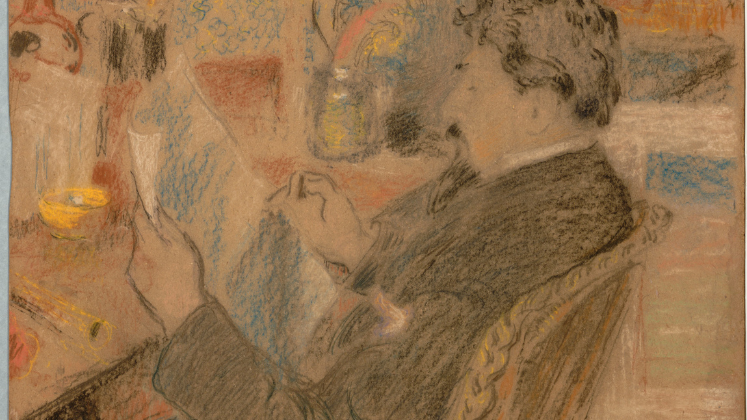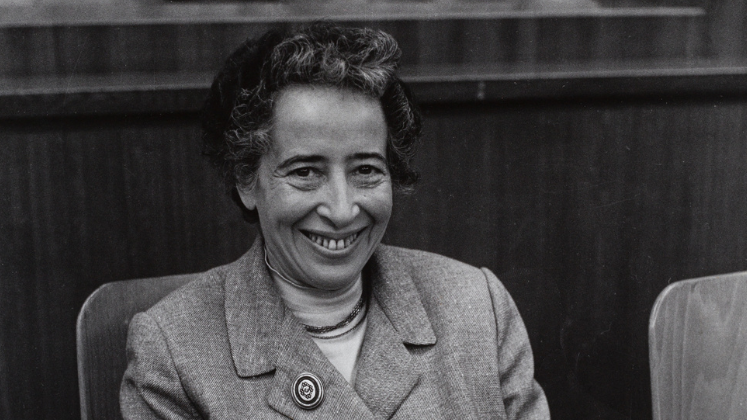The editorial guidelines for academic book reviews regularly instruct reviewers to focus on the content of the works being reviewed, rather than the authors. But how far does this hold true in practice? Drawing on evidence from historical book reviews, Sjang ten Hagen argues the personal has played a prominent role in book reviewing and that reviews perform an underestimated role in shaping the boundaries of academic communities.
In a recent contribution to this blog, David Beer presents a firm argument in defence of academic book reviewing. Beer claims that it is regrettable that this formerly prestigious working practice has now turned into a ‘marginal’ activity — to such an extent that it is often seen as a ‘waste of precious time’.
I agree that the practice of book reviewing is not properly valued. It is also understudied. In my current research project, I aim to contribute to a more comprehensive understanding and appreciation of the genre of the academic book review by examining its history. What functions has it served? And how have these varied over time and across disciplines? To provide an initial answer to these questions, I studied several thousand twentieth-century book reviews. These were sampled from the book review sections in the American journals The American Historical Review, Contemporary Psychology, Physical Review, Physics Today and Science.
The results of my research, covering the period between 1900 and 1940, have recently been published open access in History of Humanities; another forthcoming article (co-authored with Kim Hajek and Herman Paul) will address the post-war period. Both articles underline that the value and impact of academic book reviewing has been much greater than is often realised: book reviews have indeed played an important role in knowledge formation, communication and evaluation, not only in the social sciences, but also in the humanities and even in the much less book-oriented natural sciences. Book reviews were also of vital importance in social processes of disciplinary gatekeeping and community-building as well as in the personal evaluation of researchers. Book reviewers not only articulated the kind of knowledge that was being valued within their discipline; they also made clear what kind of persons they deemed capable of obtaining that knowledge.
This focus on the personal was visible across the academic spectrum.
This focus on the personal was visible across the academic spectrum. For example, early twentieth-century American historians as well as physicists considered the personal qualities of books’ authors to be a relevant issue. When reviewing books, they applied categories like ‘patience’, ‘honesty’ and ‘objectivity’ as norms to evaluate authors personally. They would praise some authors — especially like-minded, male colleagues — for exhibiting such qualities, while charging others — especially female and foreign researchers as well as non-academics — for showing a lack of them. By praising or criticising individual researchers for possessing or lacking these personal qualities — or ‘virtues’, as I generally call them — American historians and physicists distinguished between insiders and outsiders. While doing so, they aimed at consolidating the boundaries of their still unstable disciplinary communities, which had only recently started to form and institutionalise.

Image Credit: Crop of ‘Portrait of Jan Toorop’ by Georges Lemmen. Bequest of William S. Lieberman, 2005. Licensed by The Met under Public Domain.
This approach to book reviewing is clearly evident, for instance, in one of the examples that I present in my paper in which leading American historian Edward Cheyney criticised a book on Irish history by the amateur historian and activist Alice Stopford Green. Cheyney began his review by noting that ‘the patient, moderate, judicious, learned historian has for the most part simply passed poor Ireland by’. After that, he criticised Stopford Green in particular for lacking the virtues of cautiousness and moderation.
As the twentieth century progressed, it became somewhat less common for reviewers to directly mention, and praise or criticise, the (lacking) virtues of authors. But it still happened regularly: post-war American historians and psychologists still emphasised the importance for researchers of being ‘honest’, “sympathetic’ and ‘objective’. Physicists reviewing books, in turn, stressed alternative virtues, like ‘imagination’ and ‘enthusiasm’. Moreover, quantum theorist Freeman Dyson harshly criticised one book by three of his colleagues by stating that ‘what is conspicuously lacking in the whole exposition is a critical and enquiring mind’.
The continued emphasis on authors’ personal qualities in more recent book reviewing is quite surprising, since book reviewers are now usually expected to avoid this particular form of evaluation; they are explicitly instructed to focus on books’ contents. In their currently available ‘Reviews Guide’, the editors of The American Historical Review declare that reviews should mainly address ‘the basic argument of a book’. Moreover, they state that they reserve the right to ‘decline to publish reviews that, in our judgment, include ad hominem attacks’. On LSE Review of Books, as well, reviewers of books are clearly instructed to focus on ‘the arguments’ and ‘output’.
one could also take this history of book reviewing as a stimulus to conduct a much-needed, ethical discussion about the question: what personal qualities make for good researchers?
Such guidelines for book reviewers are in fact not new. In the 1970s the editor of Contemporary Psychology — a journal launched by the American Psychological Association that was solely dedicated to book reviews — instructed potential book reviewers to ‘criticize the text, the ideas, the logic, the accuracy, not the author’. ‘Let all criticism be ad verbum’, he wrote, ‘never ad hominem’, while stressing that ‘personal aspersions are taboo’.
Yet, my historical research makes clear that twentieth-century book reviewers, despite editorial instructions of the kind outlined above, never actually limited the scope of their criticism to research outputs alone: even if there was a strong imperative for book reviewers not to include the realm of the personal in their evaluations, virtues of researchers turn out to have been a relevant criterion for them.
More research is needed to determine to what extent these evaluative habits persist today, but I believe that these historical findings already provide some food for thought. Some may interpret the above as a sign for journal editors to formulate more stringent guidelines and to enforce them more strictly. This particular response seems fair enough, given the apparent role of book reviewing in the exclusion from academic communities of members from marginalised groups.
However, the history of book reviewing undoubtedly also illustrates that researchers have considered the personal qualities of their peers to be a relevant issue. The fact that book reviewers stress personal qualities could be taken to imply that they perceive research as a profoundly human and by no means impersonal endeavour, which, I think, would be for good reasons. Following this line of thought, one could also take this history of book reviewing as a stimulus to conduct a much-needed, ethical discussion about the question: what personal qualities make for good researchers? That being said, are book reviews the best location for such a debate to take place?
This blog post was originally published on LSE Impact blog and draws on the author’s paper, ‘Evaluating Knowledge, Evaluating Character: Book Reviewing by American Historians and Physicists (1900–1940)’, published in History of Humanities.
Note: This feature essay gives the views of the author, and not the position of the LSE Review of Books blog, the LSE Impact blog or of the London School of Economics and Political Science.







